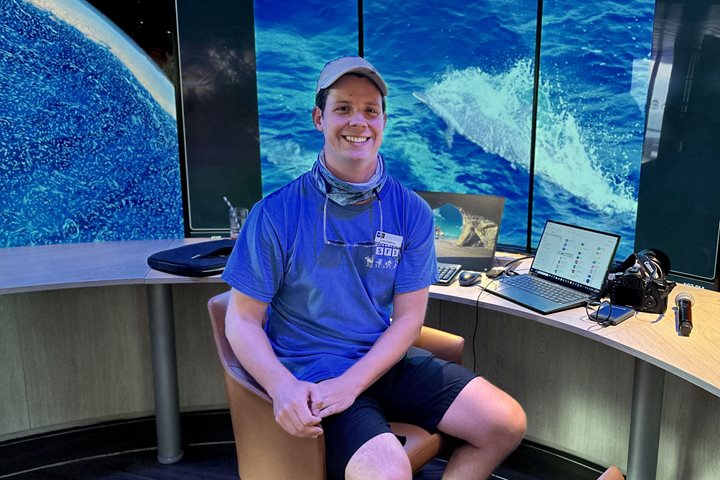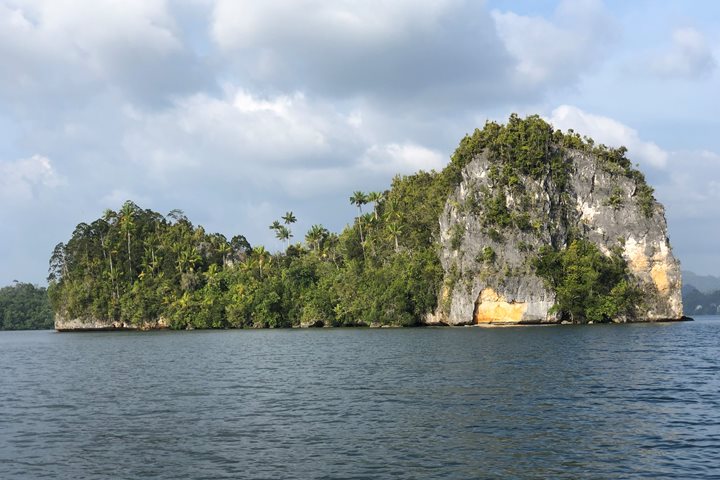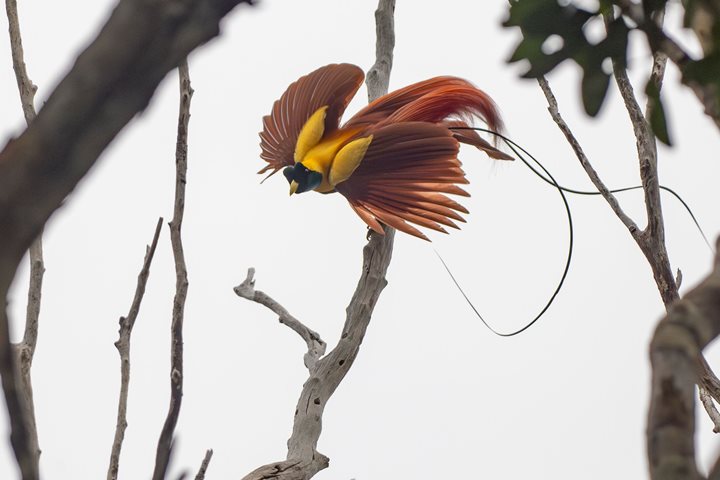This morning, National Geographic Orion awoke off Banda Neira in the Molucca (Maluka) Islands in the Banda Sea. From the bow, we had great views of the perfectly shaped volcano of Banda Api. As we approached Banda Neira, we spotted the welcoming committee as they staged for our arrival. Three large traditional war vessels (kora kora) approached with 45 men paddling to the beat of their war chant alongside the ship as we entered the channel. What an incredible reception! As we approached the dock, performers began dancing with the mosque and old fort in the background.
The Molucca Islands were once the sole source of nutmeg and cloves. Discovered by Europeans in 1512, the fight quickly ensued by the Portuguese, English, Spanish, and Dutch to take control of the spice monopoly. Both the Dutch and English settled on the small Bandas Islands. The Bandanese continued to trade with other merchants, and as a result, the Dutch decided to solve this issue by clearing the land of its inhabitants. They hired 80 Japanese mercenaries (samurai), and 90% of the population was killed. The survivors were enslaved and sent to Java. Replacing that labor void with migrants from the Malay Peninsula, Java, Borneo, and coastal China, the nutmeg trade continued while control of the islands continued to be contested. In 1667, the signing of the Treaty of Breda sealed the deal for Dutch control when the British ceded the small island of Run to the Dutch in exchange for the island of Manhattan. By the early 19th century, people started smuggling nutmeg seedlings around the world, destroying the Dutch monopoly on nutmeg and mace.
Leaving the ship after breakfast, we explored the town on Banda Neira. Visiting the museum and a nutmeg plantation, we learned more about the fascinating history of the Spice Islands.







